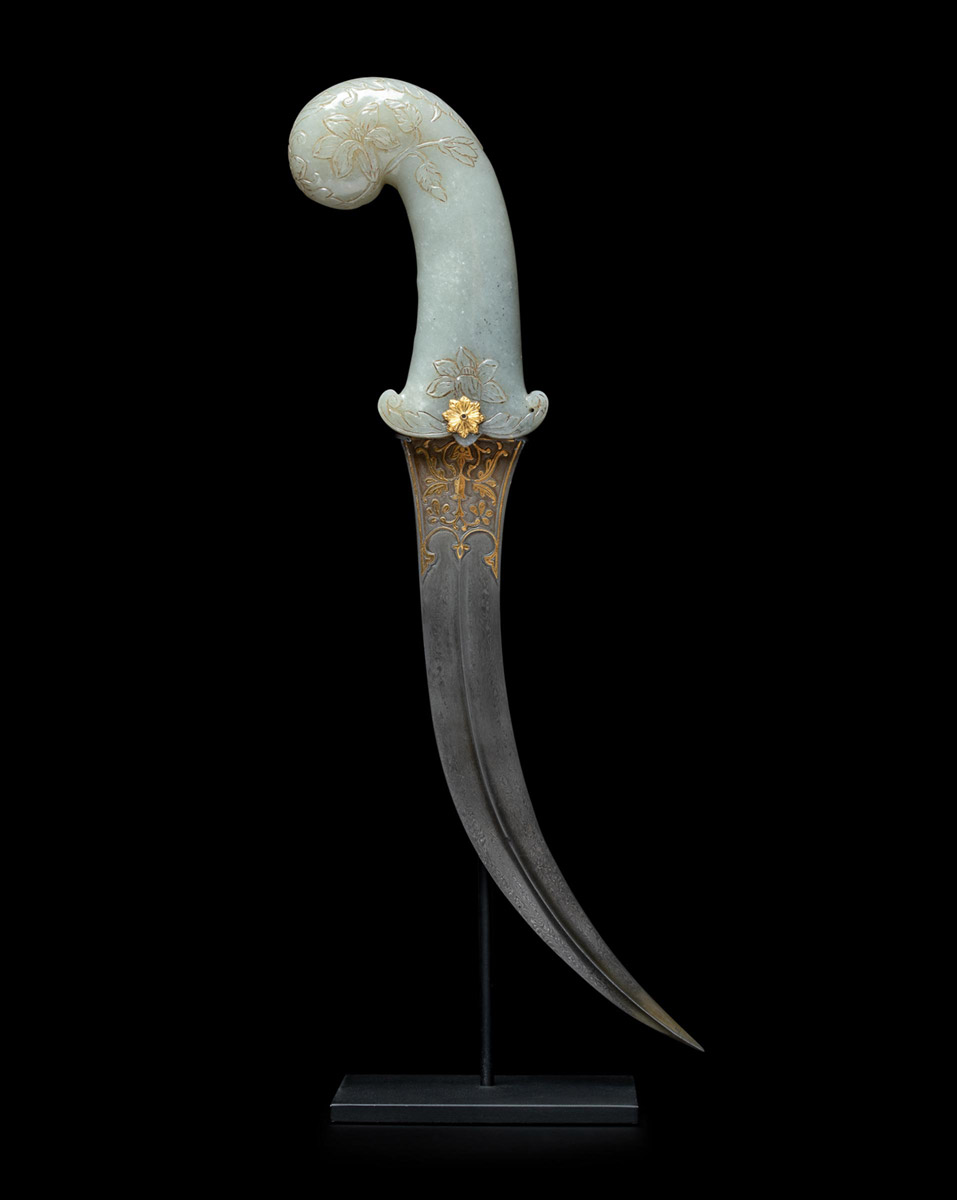

|
2. Jade-hilted and gilt khanjar Mughal 18th century 14 ⅛ in. (36 cm.) long |

Daggers or khanjars and other arms were commonly carried by Mughal courtiers, as seen in the numerous portraits produced throughout the empire. Their blades were made of tempered steel, following the Persian tradition of hammering different steels together to form a marbled pattern. The hilts, often made from jade, served to counterbalance the blades as well as display a level of opulence through reliefs, jewels, and gilding. Such decorations frequently incorporated floral and foliate designs deriving from traditional Mughal motifs. This khanjar comprises a typical ‘pistol-grip’ jade hilt with a curved double-edged wootz steel blade. Closely carved iris flowers and leaves decorate the lobed quillon block and pommel on either side, spreading over the medial brim of the hilt. Beautifully gilded foliate designs adorn the base of the blade, which displays a central ridge and rich marbling throughout. For another delicately carved jade-hilted Mughal dagger with gilt blade designs, see the collection of the Victoria & Albert Museum (acc. 721&A-1889). Detail: hilt Detail: hilt |